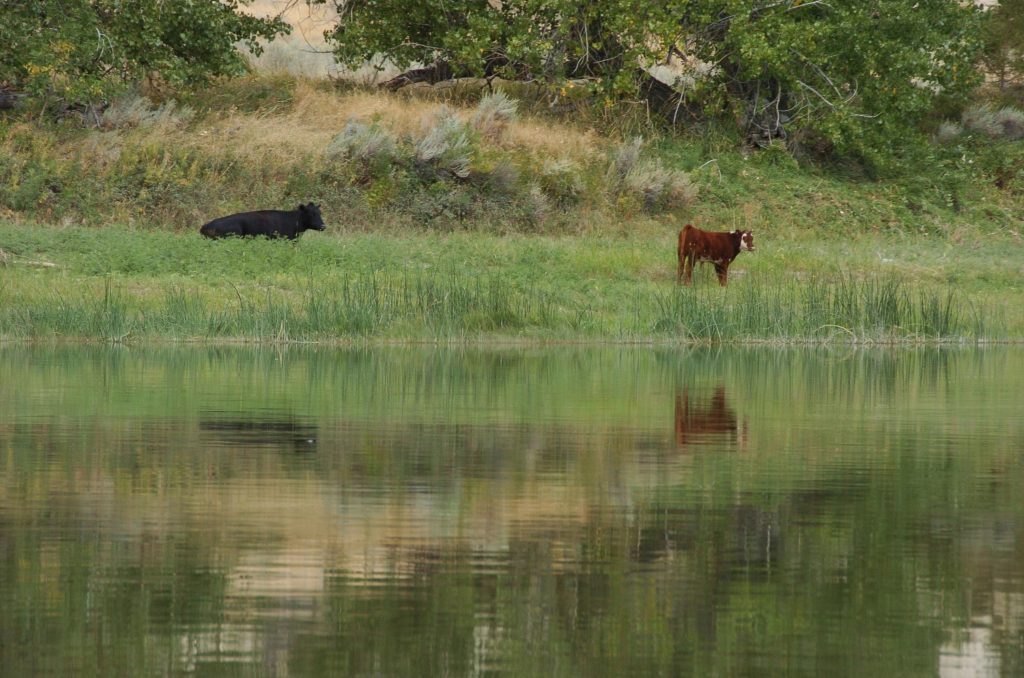By MATTHEW BROWN (Associated Press)
BILLINGS, Mont. (AP) — The Biden administration recently finished a new regulation for managing public land to give conservation equal importance as oil drilling, grazing, and other extractive industries on large government-owned properties.
There was strong opposition from private industry and Republican governors but the proposal was still accepted.
The new rule from the Interior Department’s Bureau of Land Management — which manages more than 380,000 square miles (990,000 square kilometers) of land, mostly in the U.S. West — will allow public property to be leased for restoration similar to how oil companies lease land for drilling.
The rule also encourages the designation of more “areas of critical environmental concern” — a special status that can limit development. This status is given to land with historic or cultural significance or that’s important for wildlife conservation.
The land bureau has a history of industry-friendly policies and for more than a century has sold grazing permits and oil and gas leases. In addition to its surface land holdings, the bureau regulates publicly-owned underground mineral reserves — such as coal for power plants and lithium for renewable energy — across more than 1 million square miles (2.5 million square kilometers).
Interior Secretary Deb Haaland said the changes would “restore balance” to how the U.S. government manages its public lands. The new rule continues the administration’s efforts to use science to restore habitats and guide “strategic and responsible development,” Haaland said in a statement.
But Republican lawmakers and industry representatives criticized the move as a backdoor way to exclude mining, energy development, and agriculture from government acreage that’s often cheap to lease. They assert the administration is violating the “multiple use” mandate for Interior Department lands, by catapulting the “non-use” of federal lands — meaning restoration leases — to a position of prominence.
“By putting its thumb on the scales to strongly favor conservation over other uses, this rule will obstruct responsible domestic mining projects,” said National Mining Association President Rich Nolan.
The rule’s adoption comes amid a flurry of new regulations from the Biden administration as the Democrat seeks reelection to a second term in November.
Government agencies in recent weeks tightened vehicle emissions standards to reduce greenhouse gas emissions, finalized limits on PFAS chemicals in drinking water and increased royalty rates for oil companies that drill on public lands.
About 10% of all land in the U.S. falls under the Bureau of Land Management’s jurisdiction, putting the agency at the center of arguments over how much development should be allowed on public property.
Environmentalists mostly welcomed the changes made on Thursday, seeing them as long overdue.
Trout Unlimited President Chris Wood said conservation was already part of the land bureau’s mission under the 1976 Federal Lands Policy Management Act. The new rule, he said, was “a re-statement of the obvious.”
He said they are happy to see the agency acknowledging that conservation is an important use of our public lands, which the law already states.
A strong critic of President Biden, Wyoming Sen. John Barrasso, announced he will introduce a bill to repeal the public lands rule. He claimed it would hinder access to areas in Wyoming that are crucial for mineral production, grazing, and recreation.
He said President Biden is allowing federal bureaucrats to ruin their way of life.
Democratic Rep. Raul Grijalva of New Mexico stated that protecting public lands has broad support among the American people.
Grijalva said that oil, gas, and mining companies have had too much influence on our public lands for a long time.
Officials mentioned that restoration leases will not be issued if they would clash with existing activity on a piece of land. They also stated that private industry could benefit from the program by purchasing leases and restoring the land to offset damage to other government-owned properties.
The agency originally referred to these leases as “conservation leases” in the proposal last year. This was changed to “restoration leases” and “mitigation leases” in the final rule, although their purpose seems largely the same.
While the bureau previously issued leases for conservation purposes in limited cases, it has never had a dedicated program for it.
Bureau Director Tracy Stone-Manning said the changes address the rising challenges of climate change and development. She told The Associated Press when the changes were announced last year that making conservation an “equal” to other uses would not interfere with grazing, drilling, and other activities.
Former President Donald Trump tried to increase fossil fuel development on bureau lands, before President Joe Biden suspended new oil and gas leasing when he took office. Biden later reinstated the deals to secure the support of West Virginia Democratic Sen. Joe Manchin for the 2022 climate law.









